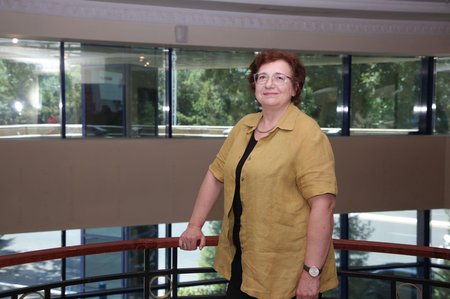



Altynay Abdykerimova (Kyrgyzstan)
Shosaboiyeva Mehrangez (Tajikistan)
Gulnara Bakhtybayeva (Kazakhstan)
Anara Sultangaziyeva (Kyrgyzstan)
Uzakova Shiringul (Uzbekistan)
Kholikzoda Mavdzhuda (Tajikistan)
Nalibayeva Gulzhan (Kazakhstan)
Zholdayakova Saule (Kazakhstan)
Zhenishkul Imanakunova (Kyrgyzstan)
Kundus Kyrbasheva (Kyrgyzstan)
Nurzat Abdyrasulova (Kyrgyzstan)
Eleonora Kazakova (Kyrgyzstan)
Elvira Borombayeva (Kyrgyzstan)
Umurzokova Kanoathon (Uzbekistan)
Saidkhodzhayeva Malika (Uzbekistan)

My tasks include the preparation of the relevant sections of the National Communications of the Republic of Uzbekistan on climate change and the Inventory of anthropogenic greenhouse gas emissions; the formation of the National System for Monitoring, Reporting and Verification (MRV) of greenhouse gas emissions in all sectors of the Republic of Uzbekistan, within the framework of Uzbekistan's obligations under the UNFCCC Framework Convention and the Paris Agreement. The Energy sector is the largest and most multi-structural part of the inventory of anthropogenic greenhouse gas emissions into the atmosphere, including 76-82% of all emissions in the country.
Favorite quote or words of advice:
“Be curious: those who ask a lot of questions tend to be the most successful”
"Invest in your education" (Bill Gates)
I am a chemist. The choice of this profession was largely influenced by my parents and a school teacher who taught this subject at a high professional level.
After graduating from Tashkent State University with a degree in analytical chemistry, I worked for some time at school, but since I was more attracted to research and scientific activities, I started to work at the Scientific Research Hydrometeorological Institute in the Department of Research and Forecasts of Environmental Pollution. For almost 20 years I was engaged in research composition of atmospheric aerosols and the study of salt and dust transfer from the Aral Sea. After the funding of this thematic area was completed, it was necessary to choose a new direction for work and consequently start from scratch.
So, I moved to another structure - Uzhydromet and began to study a new area for me - the inventory of greenhouse gas emissions, about which I had very little information before. Over the past 10 years, I have worked to improve my skills in this area, learning new methodologies and analysis tools. This work requires constant upgrading of their skills and keeping update with the new requirements of the Convention. Despite all the difficulties, I like this work and I do it with pleasure. Perhaps this is the main key to success. Dedication to work and the desire to see the results of my work helped me to accumulate deep knowledge and experience, introduced me to many colleagues in the region and abroad. I was able to visit many countries, as well as travel around my native Uzbekistan during business trips. Together, this helped me become an international expert in the field of greenhouse gas inventories.
I consider humility, determination and dedication to work and colleagues are very important qualities that have always helped me.
My well-being at work is in the continuous desire to study the multi-structural and complex systems of all sectors of the economy and to participate in the creation of a new national structure on climate change - the national system of Monitoring, Reporting and Verification of greenhouse gas emissions.
Partly due to labour-intensity of the work, long training requirements and scrupulousness with data, specialists are leaving for sectoral projects and the private sector. Unfortunately, at present moment, specialists who make calculations, create methodological recommendations and carry out a systematic assessment of greenhouse gas emissions at the country and global level are a few. However, the "school of mentoring" that we have created helps our students work on environmental and climate projects and contribute to their further career development.
The system of energy and renewable energy sources is very multi-structural and science-intensive. Each specialist can find a niche that is interesting to her. In the future, with the development of the MRV system, the need for in-house GHG estimators will increase, whether at the company or at the regional level.